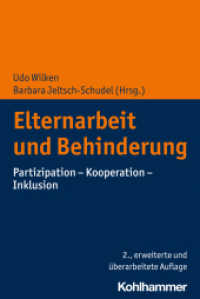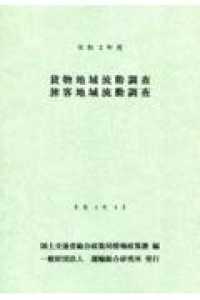- ホーム
- > 洋書
- > 英文書
- > Literary Criticism
Full Description
Much of the previous scholarship on Russia's literary discourses of sexuality and eroticism in the Silver Age was built on applying European theoretical models (from psychoanalysis to feminist theory) to Russia's modernization. This book argues that, at the turn into the twentieth century, Russian popular culture for the first time found itself in direct confrontation with the traditional high cultures of the upper classes and intelligentsia, producing modernized representations of sexuality. This Russian tradition of conflicted representations, heretofore misassessed by literary history, emerges as what Foucault would call a full-blown "bio-history" of Russian culture: a history of indigenous representations of sexuality and the eroticized body capable of innovation on its own terms, not just those derivative from Europe.
Contents
Acknowledgments
Introduction: Approaching Russian Silences and Burlesques
1. Carnality and Eroticism in the History of Russian Literature: Toward a Genealogy of a Dis-course of Silence
2. Golden Silences in the Golden Age: Russian Anxieties of the Body and Sexuality from Gogol to Chekhov
3. Silence is Golden, Speech is Silver: Corporeality, Sensuality, and "Pornography" in Russian Literature of the Silver Age
4. Exploring the Impetus of the Silver Age: The Evolution of Discourses of Carnality and Eroticism in Pre-Revolutionary Russian Literature and in Émigré Writing
5. Nabokov's Lolita and its Precursors: Silver Age Roots and Sexuality in the Novel
6. Joseph Brodsky's Libertinage: Sexual and Erotic Themes in his Poetry
Conclusion: Russia's "Threshold of Modernity" and Literary Representations of Sexuality in the Era of Bio-power
Bibliography
Index














